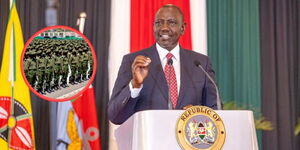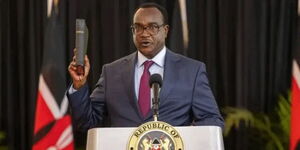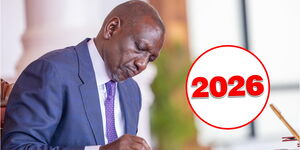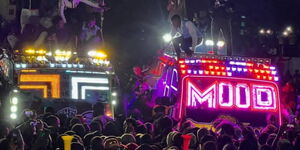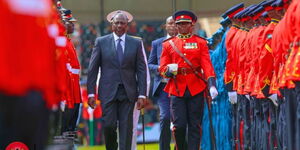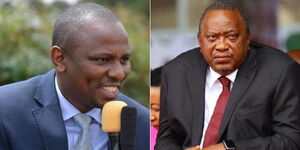As the country heads to the August 9 polls in 6 days, the news cycle has been dominated by accusations of politicians buying National Identification cards (IDs) in a bid to reduce their opponents' support base.
This is just one of the tricks used by politicians to beat their opponents in the important democratic exercise.
Here are some of the tricks being used by politicians a few days to the polls in order to emerge victorious.
Buying IDs
IDs play a crucial part in the electoral process. First, they are used by Kenyans to register as voters. Most importantly, the identification document is also used to identify voters during the polling exercise.
The Independent Electoral and Boundaries Commission (IEBC) has on numerous occasions come out to insist that one must present their original ID or passport - used in the registration process, before being allowed to take part in the democratic exercise.
This has seen some politicians attempt to manipulate the electoral process by purchasing IDs in areas perceived as their opponent's support base so as to reduce the number of voters who turn up to cast their ballots.
In a cunning move, some politicians even pretend to be enlisting people into Saccos so as to get the important document.
Buying Alcohol for Opponent's Supporters
More often than not, the eve of election day is marred with rowdiness and celebrations which have been blamed on the use of alcohol.
This is a trick that is used occasionally by politicians who purchase large amounts of liquor, especially for youth supporting their opponents. The aim of this trick is to get the youth drunk so that they do not show up on the voting day.
This trick has already seen some government agencies such as the National Government Administration Officers (NGAO) and National Authority for the Campaign Against Alcohol and Drug Abuse (NACADA) recommending the closure of all bars and entertainment joints on the eve of the elections and on the voting day.
Faking kidnappings
President Uhuru Kenyatta's first stab at the Gatundu South parliamentary seat hit a snug after his opponent, Moses Mwihia, faked own kidnapping to earn sympathy votes from the electorate.
The plan, as widely reported, was to have residents blame his disappearance on the Kenyatta family which had a lot of influence in Mount Kenya politics.
The plan saw Uhuru lose the elections after his opponent resurfaced in the afternoon of the polling day after a majority of the residents had already cast their votes. Mwihia garnered 22,000 votes against Uhuru's 10,000 in the 1997 polls.
In the following years, a number of politicians have adopted the strategy to earn sympathy votes from the electorate as they play the victim card.
Faking Opponent’s Endorsements
The term 'October surprise' originates from America and refers to news that influences the outcome of the polls in the last minute. The news is often deliberately planned to deal an opponent the 'last punch' that guarantees their loss or shift in their support base.
Among the tricks used in this category include fake news purporting to be an opponent's endorsement. The news can be released a day before the official campaign period is closed with the targetted politician not having enough time to issue a response to clear the air.
In recent weeks, various politicians have come out to clarify that they are still in the contest despite reports on social media showing that they have stepped down. Some of the candidates who have been affected include Machakos gubernatorial candidates Nzioka Waita and Johnson Muthama.
Bribing Opponent's Agents
Another very common trick that has been widely used during elections is the bribery of the opponent's agents. Agents are important on election day as they are the watchmen tasked with safeguarding the integrity of the poll and the votes cast for their candidate.
This form of bribery is often done with the aim of making the agents turn a blind eye to some of the electoral malpractices planned on the polling day. This mostly applies to instances where a politician intends to rig the election.

